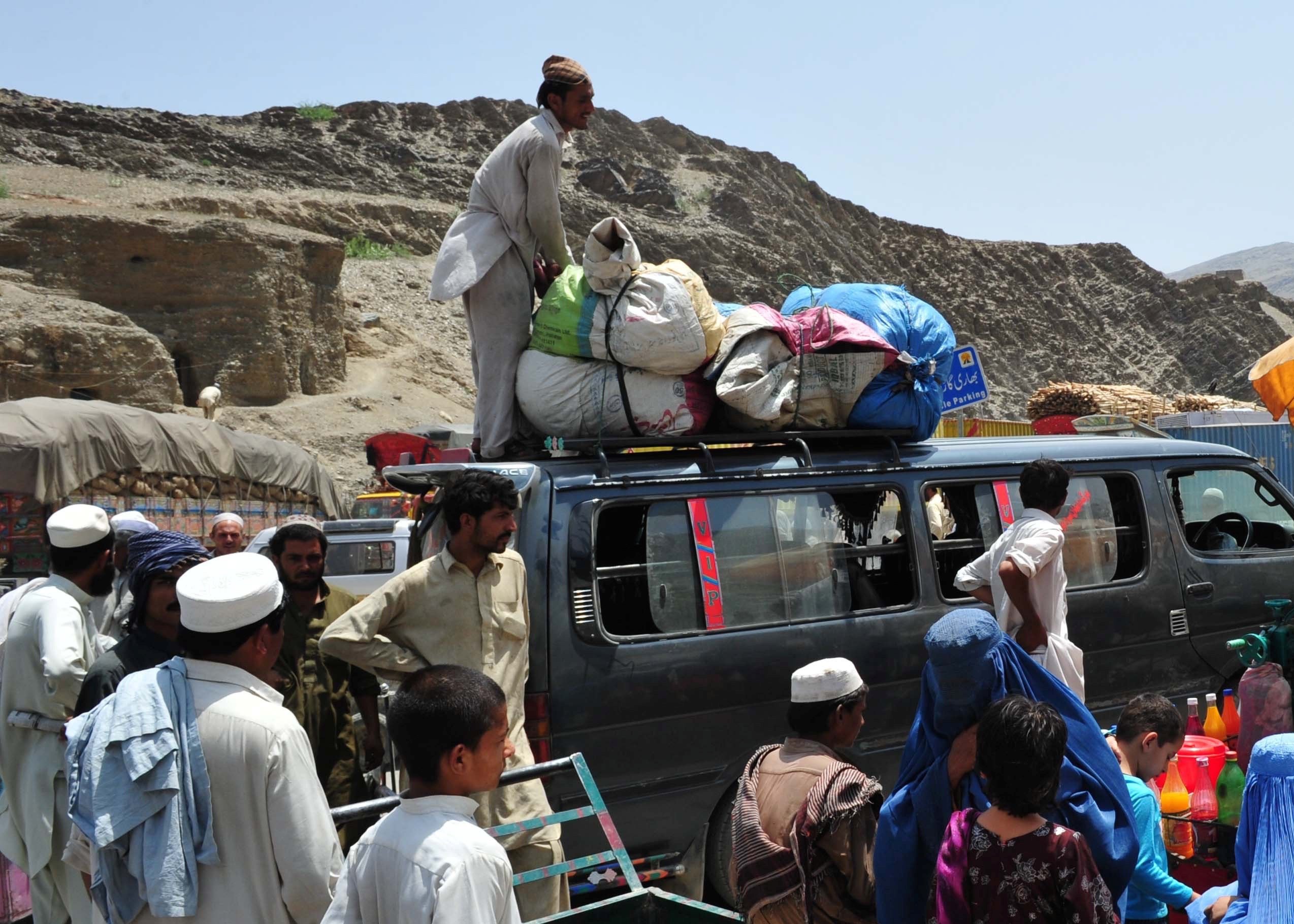Pakistan’s military says it’s in the final phase of operations to clear militants from areas near the Afghanistan border, and the government plans to return those displaced by the fighting by the end of this year. But people who fled are reluctant to go home, saying that compensation offered by the government isn’t nearly enough to rebuild their lives.
More than 1.2 million people were displaced from the Federally Administered Tribal Areas after Pakistan’s military launched an offensive against militant groups in June 2014, according to the UN refugee agency, UNHCR. Most internally displaced people have already returned, but the government says nearly half a million remain in camps, mostly around the city of Peshawar.
The FATA are a cluster of federally administered “agencies” along Pakistan’s northwestern frontier with Afghanistan. Access to outsiders is strictly limited and the government exerts little control in many areas where armed groups have long been active.
The Ministry for States and Frontier Regions says it is working to return all remaining IDPs to FATA this year, and it plans to begin the next stage of resettlement this week.
"We are trying our best for these people to return to good conditions in their home region,” the minister, Qadir Baloch, told IRIN.
Those who have already returned said the government did little to rebuild their devastated communities.
Rehman Khan Afridi was provided with 25,000 rupees (about $240) when he went back to his home in the Tirah Valley in Khyber Agency last September. But that didn’t even come close to covering the cost of rebuilding his five-room house, which was completely destroyed.
"We literally had nowhere to live," said Afridi. “The money I had been given was quickly used up on food, medicines for my wife and merely on survival.”
For two weeks, Afridi, his pregnant wife, their five children and his elderly father slept under a canvas sheet. Then the family decided to return to Peshawar.
After hearing stories like that, other families are debating whether to go home this week.
"We are told we will be given some cash support to meet our basic needs, but there is no news of what will be done to rebuild our demolished homes," said Ahmed Khan, who was displaced with his family from South Waziristan last July.
‘The last battle’
In a statement released Sunday, the military said it was attacking remaining holdouts of militants in the Shawal Valley in neighbouring North Waziristan.
“The battle to clear (the) last pocket close to Pak-Afghan border continues,” said the statement, which included casualty figures of 252 militants and eight government soldiers killed in the past two months.
Heavy fighting over the past two years has also exacted a heavy toll on the civilian population. Not only have people been displaced; they have also been subject to abuses by the military, according to the Human Rights Commission of Pakistan
“In the Federally Administered Tribal Areas (FATA), the security forces are reported to have taken over private property of the locals with impunity,” the commission said in a statement yesterday. “Reports of the use of excessive force in some villages are harrowing, where no house has been left standing and the population has had to escape the onslaught.”
The commission called for investigations into the deaths of civilians in military custody, and said the plight of IDPs has been “all but forgotten” by the government.
“No efforts have been made to adopt a proactive policy or a long-term strategy to address the challenges associated with internal displacement,” said the commission.
In its statement, the military referred to a “master plan” for infrastructure development, although it gave little detail, saying only that 94 “projects of various natures have been completed”, while another 153 were under way.
Lack of funds
The FATA Disaster Management Authority is appealing for more money, but “funds to repatriate IDPs are limited”, said an official, speaking on condition of anonymity since they were not authorised to talk to media.
Returnees who spoke to IRIN by phone also said there was little evidence of development.
Ayub Wazir went home to the South Waziristan town of Wana two weeks ago only to find that the local economy had been destroyed, along with homes and infrastructure. There was no sign of government efforts to rebuild or create jobs and business opportunities.
"There is literally nothing to do here," said Wazir. "I can rebuild my home on my own, but I need more funds and a job to do so."
Khawar Khan Afridi, a doctor who runs a clinic in the town of Bara in Khyber Agency, said the situation was the same there: "There is very little here now for people to come back to.”
kh/jf/ag




